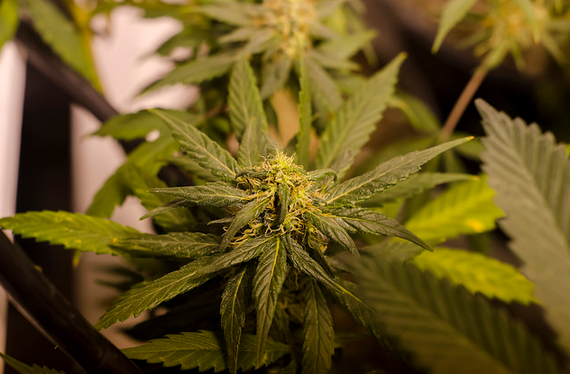Breaking
Ottawa’s pot plan sparks enforcement concern at provincial level

The federal government’s plan to make Canada the first G7 country to legalize marijuana is creating political friction domestically, amid fears it will be the latest bone of contention between some of the provinces and Ottawa. (Photo: Brett Levin/Flickr)
OTTAWA — The federal government’s plan to make Canada the first G7 country to legalize marijuana is creating political friction domestically, amid fears it will be the latest bone of contention between some of the provinces and Ottawa.
A number of provincial governments are expressing concern in the wake of signals that federal legislation to legalize pot will be introduced the week of April 10 — just 10 days before annual “Weed Day” celebrations held across the country.
Quebec’s outspoken Health Minister Gaetan Barrette said Tuesday that Ottawa tossed out a date for the proposed legislation without warning.
“It’s not normal for a national government to address its partners in this way,” he said in Quebec City. “For a government that often has the word respect on its lips, that could also extend to federal-provincial relations.”
However, Quebec Premier Philippe Couillard said he doesn’t see the effort to legalize pot as a point of friction in federal-provincial relations, although he wants to see the fine details of the proposed legislation and the extent of the burden placed on the provinces.
“There are many issues that will be in provincial court, and we don’t want to have a wide range of expensive and heavy responsibilities pushed on us,” he said. “I think this message has been heard in Ottawa: Let us see the bill and we’ll come back to it.
”
Saskatchewan said in a statement that Ottawa has offered “nothing” in the way of a pan-Canadian approach on regulations, prompting fears of a patchwork of rules and insurmountable law enforcement challenges.
The province also said it is concerned about public safety and significant increases in enforcement costs — a tab it doesn’t plan to pay itself.
“There will be increased enforcement costs to protect against marijuana-impaired driving and we have indicated to the federal government that we expect them to bear the full costs of any of those measures —whether technology or additional police officers — or both.”
For its part, Manitoba says there will be numerous challenges to address, although it has been preparing for the changes through extensive research and consultation.
“An area of concern that we have taken a proactive approach on is public safety,” Manitoba Justice Minister Heather Stefanson said in a statement.
Last week, the province introduced its own bill to target drug-impaired driving as part of its preparation for the federal legislation.
Ontario, New Brunswick and Alberta all seem keen to prepare for a new era of legal recreational marijuana, said Bruce Linton, the CEO of Canada’s largest marijuana producer Canopy Growth Corp.
“They’ve been ramping up,” he said in an interview. “We have been meeting with various provincial leads for half a year.”
Various systems will likely be used as provinces develop their own distribution process, Linton added.
David Coletto, the CEO of polling firm Abacus Data, said one of the main political risks for the Liberal government on marijuana is that distribution could look very different across the country.
“If you’re a voter who lives in Alberta where you don’t have a provincial liquor commission, are they going to establish a Crown corp that takes care of marijuana?” he said.
He also said from a messaging perspective, the government needs to be clear about what it means by responsible use.
“There’s a lot of unknown about how society is going to react to this,” Coletto said.
—with files from Jennifer Graham in Regina and Sidhartha Banerjee in Montreal





















